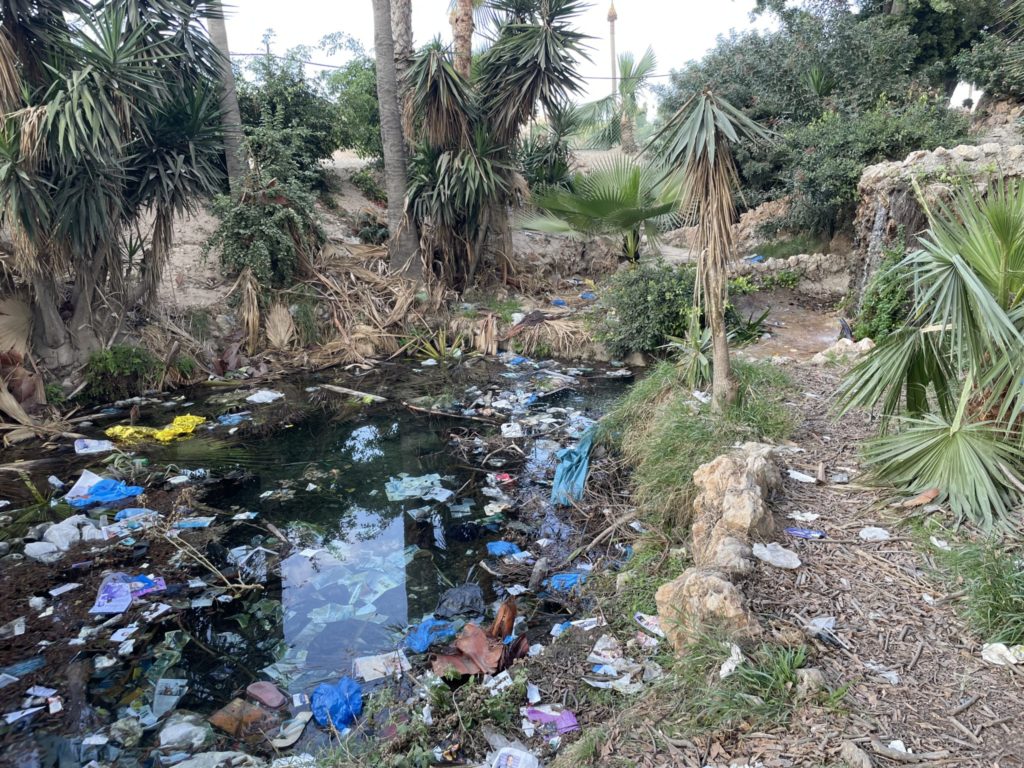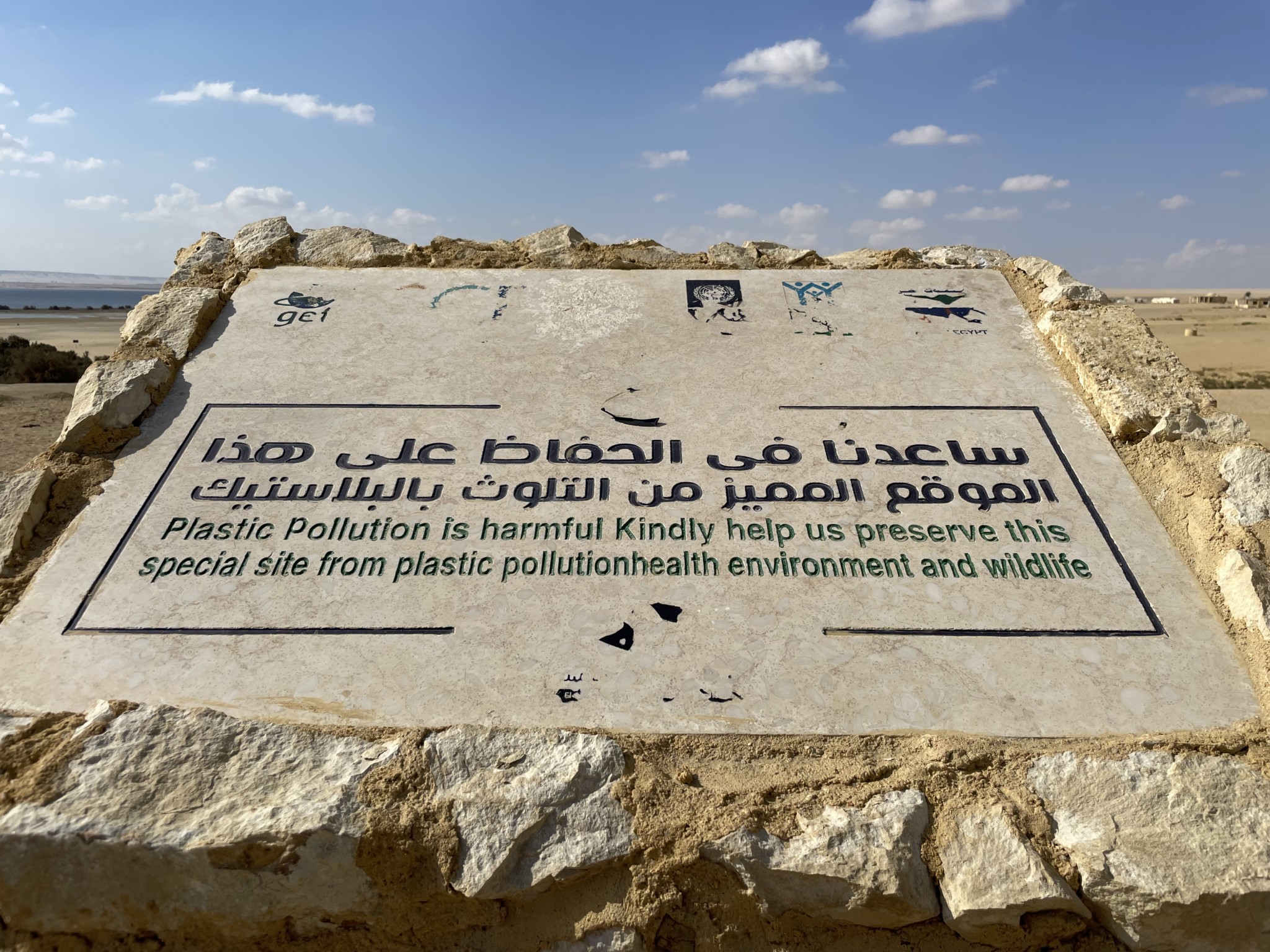Traveling is always a nerve-wracking experience, but it’s not everyday that you go to a country you were actively protesting the month before. Long before COP27, I had plans to visit my mom where she was teaching in Egypt, for Christmas. During the COP, XRPDX brought to my, and many others’ attention, the human rights violations against political activists by Egypt’s regime. We rallied at Pioneer Courthouse Square in November in support of Alaa Abd El-Fattah and an estimated 60,000 people unjustly behind bars. And then I left, knowing that the place I was going was like nowhere I’d ever been, and I was sure going to have to be careful about what I said.
Flying into Sharm El-Sheikh, I was greeted by walls full of colorful banners. Some read the obligatory “welcome to Egypt,” some had photos of the beautiful coral that the city is famous for, but most were obviously left over from the recent COP27. “Green City” “The New Green Egypt!” “Welcome to Green Egypt” and “COP 27 for a Better Future!” looked at me from all sides. I felt myself growing hopeful, that maybe Egypt wouldn’t be like I had heard. That there would be a visible sustainability movement, or strides being made for one.
A few hours later when I arrived in Cairo, that hope was quickly squashed. Don’t get me wrong, I loved Cairo and everywhere I went in Egypt. I found myself falling in love with the city, the culture, and the history. Egypt really isn’t like all those stories you hear. I had been scared but actually felt safer in most places there compared to how I feel in the US. But my goodness, when it comes to environmental anything, it really is like how you hear, and I’m baffled as to how Egypt hosted a COP.
Egypt is a country where the only reliable forms of transportation are cars or donkey carts. There are small buses that locals ride, but are notoriously unsafe for tourists, and as a feminine-presenting person, the Metro system was a no-go. So cars it was. We took one train on a long distance journey, and I would have loved to travel by train for all of our longer trips, but we had to fly to and from Luxor after the cost of living rose higher and it was advised for non-Egyptians to not take the train for safety reasons.
Adding to the problem, Egypt doesn’t have drinkable tap water. Bottled water is the only safe source of water, and there’s no recycling. Trash is picked up daily not by the city but by a local community of trash collectors. It’s everywhere. The streets are covered in it, the parks, and even some less visited archaeological sites look more like rubbish heaps than places for leisure. Trash cans read “go green. keep clean” but are surrounded by garbage and not actively used. At Wadi El Rayan national wildlife preserve, despite huge signs proclaiming the site a “plastic free zone,” plastic littered the desert and blew along the roads. And right opposite the Black Pyramid in Dashur was an oil rig and military training camp, a lovely addition to my sightseeing.

But I did see some things that gave me hope. At the main archaeological and tourist sites in Luxor, the vehicles that brought you from the ticket stands to the monuments were electric. In and around the oasis of Fayum, wildlife flourished by both natural and artificial lakes and national protected areas. We saw flamingoes, falcons, and gray herons, and the governorate was actively laying sewing and fresh water pipes to supply the residents.
I hesitated to write this blog post. One of my tour guides while I was there told me not to speak ill of their government. That “the walls have ears.” If the tourism police had seen me take the photo that accompanies this piece, or any photo that may “portray Egypt in a negative light” they would have made me delete it, and could have confiscated my phone. And as someone who came as a tourist, who only has an outside perspective, I know that I’m missing things or don’t get the nuance of it. But Egypt hosted COP27, this we know. Egypt also has human rights violations against climate activists. And Egypt has a very visible problem when it comes to sustainability.

